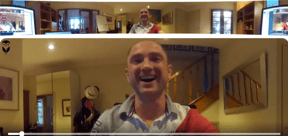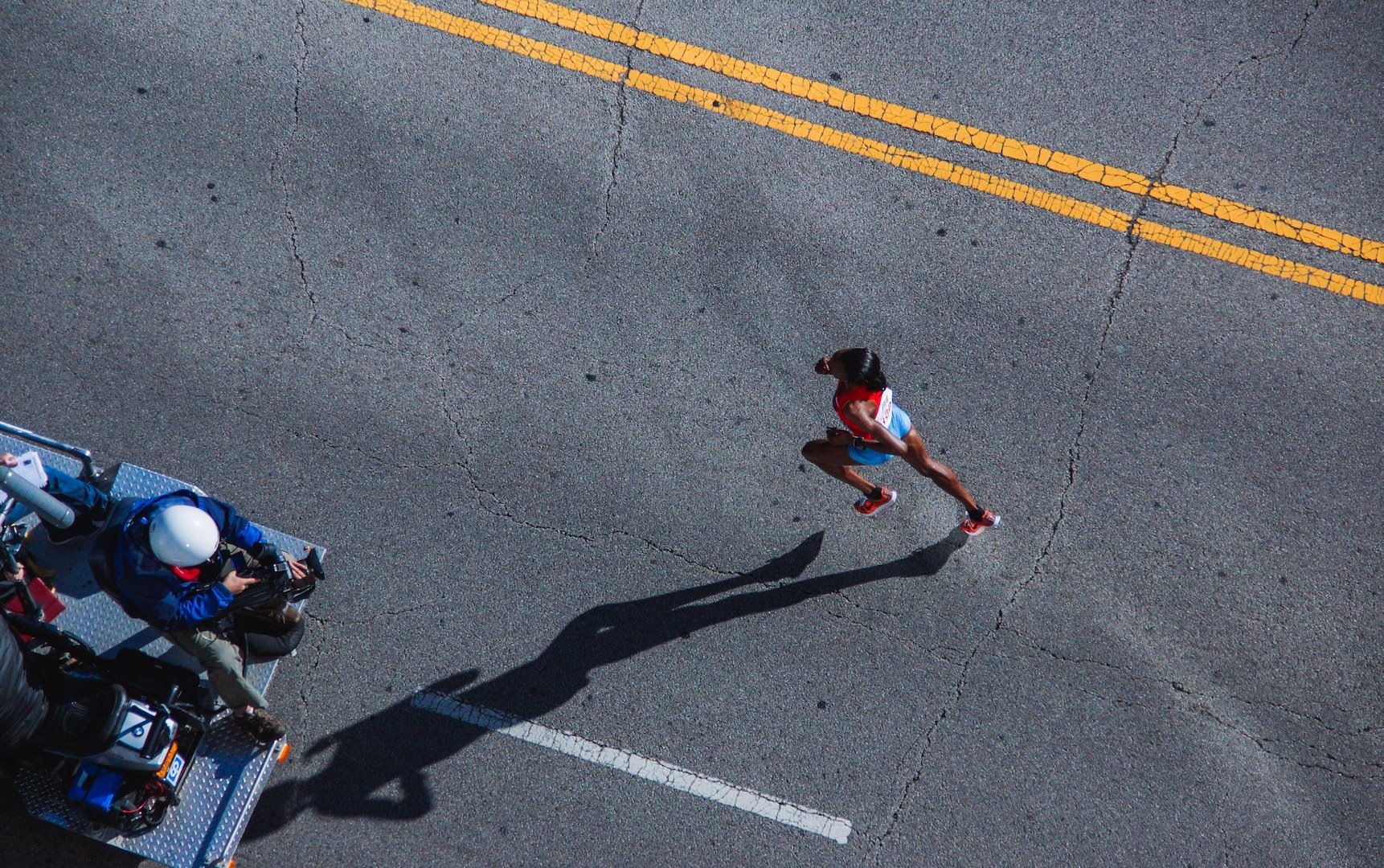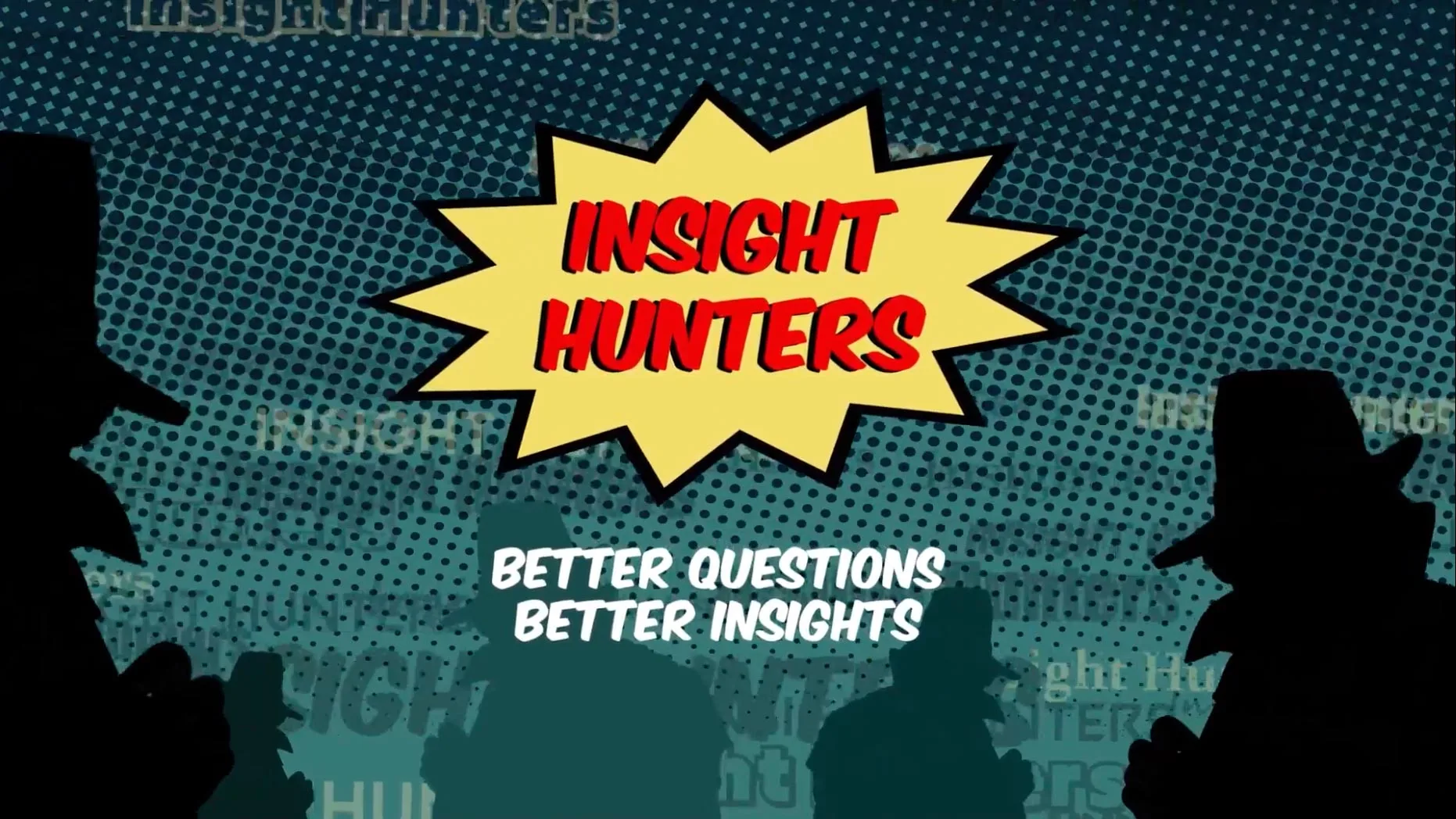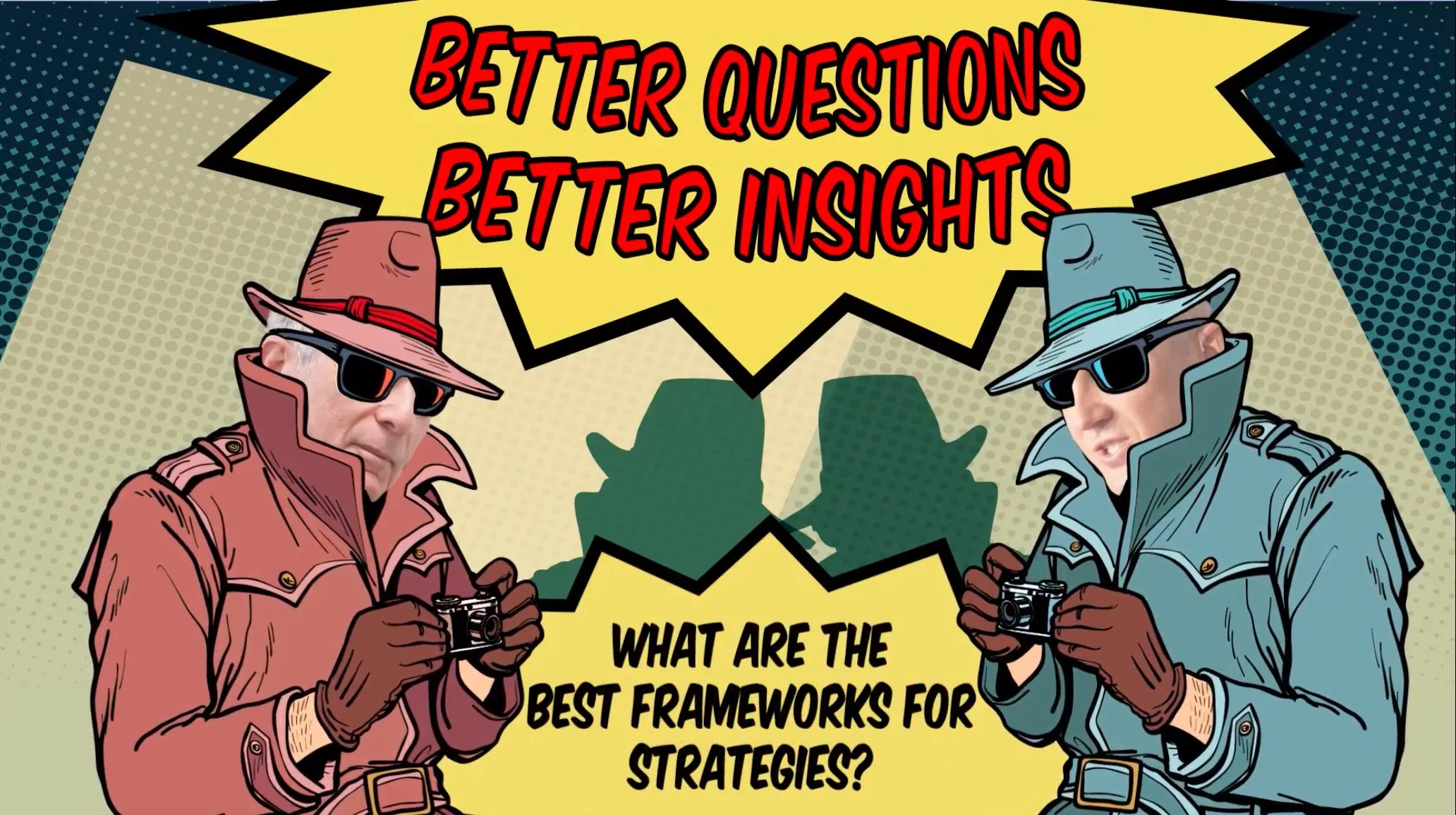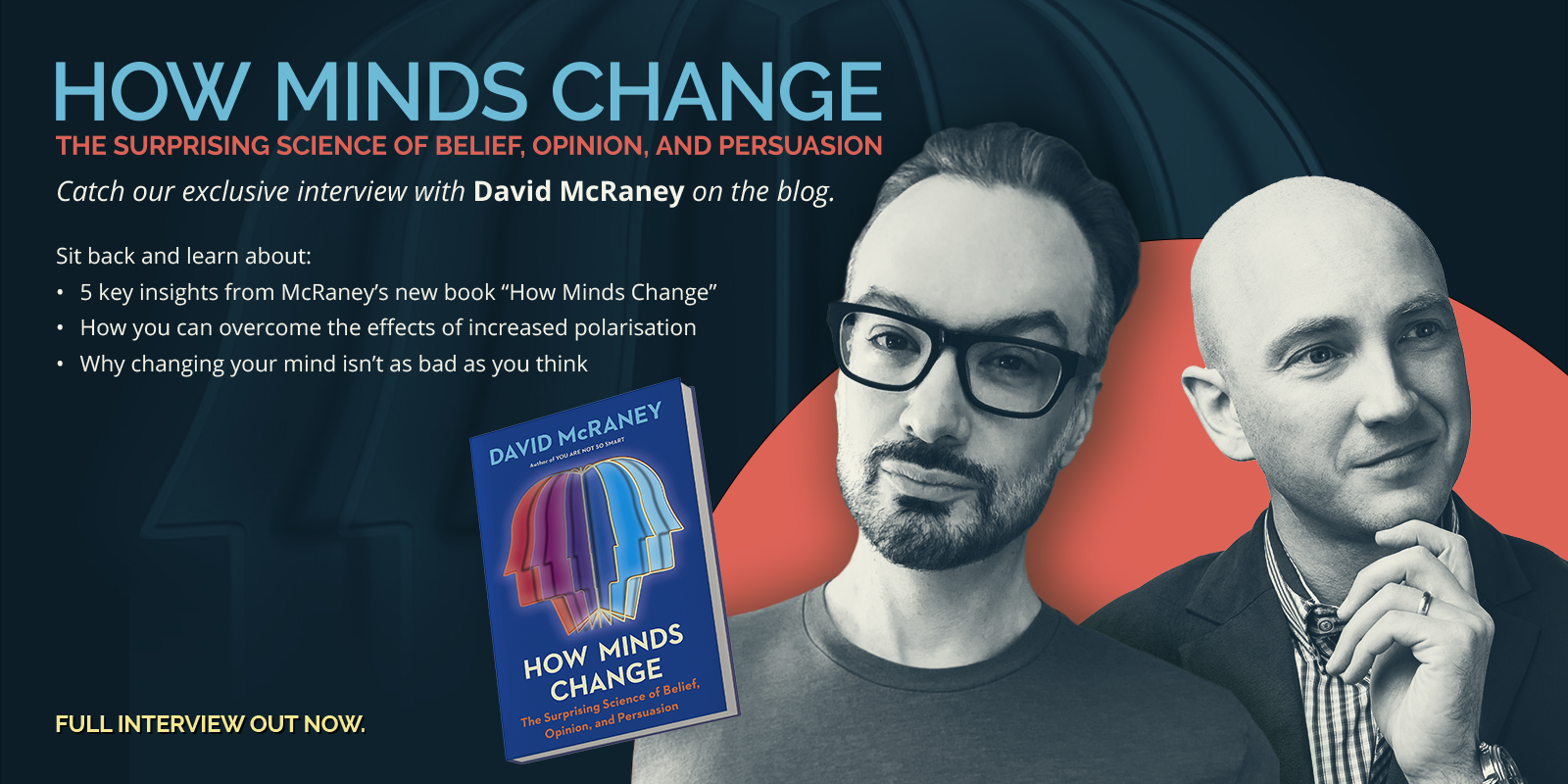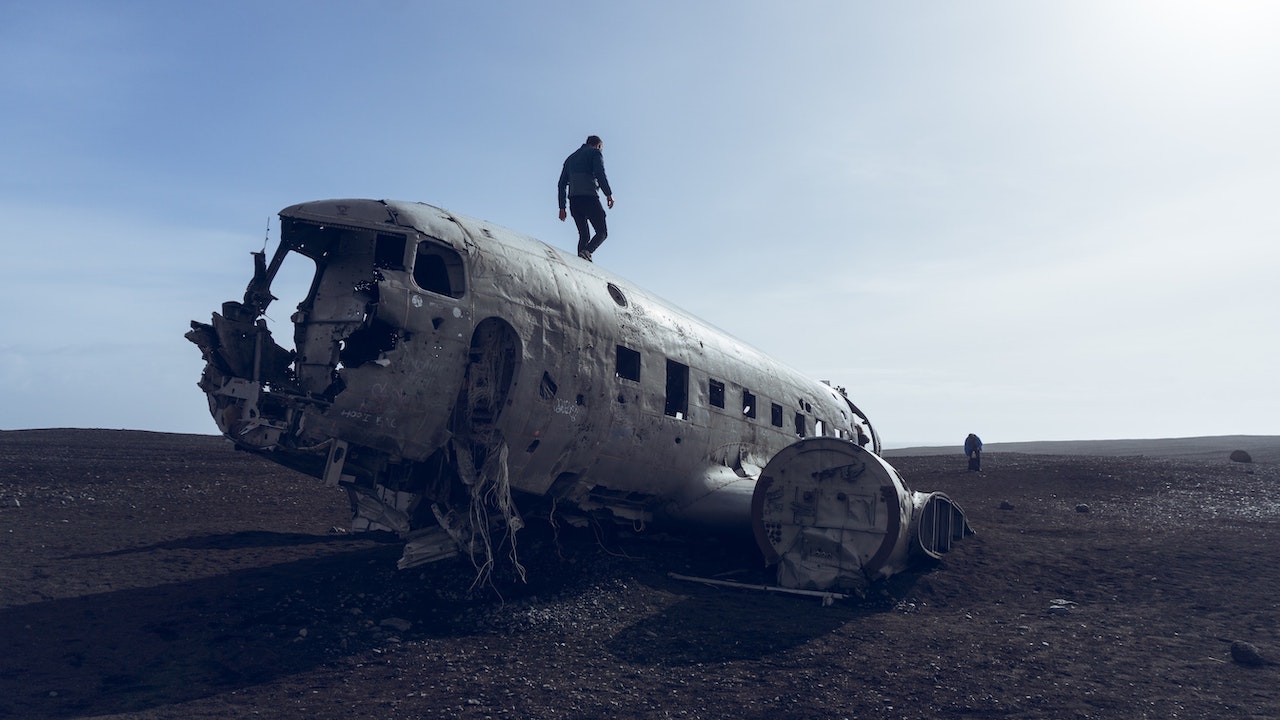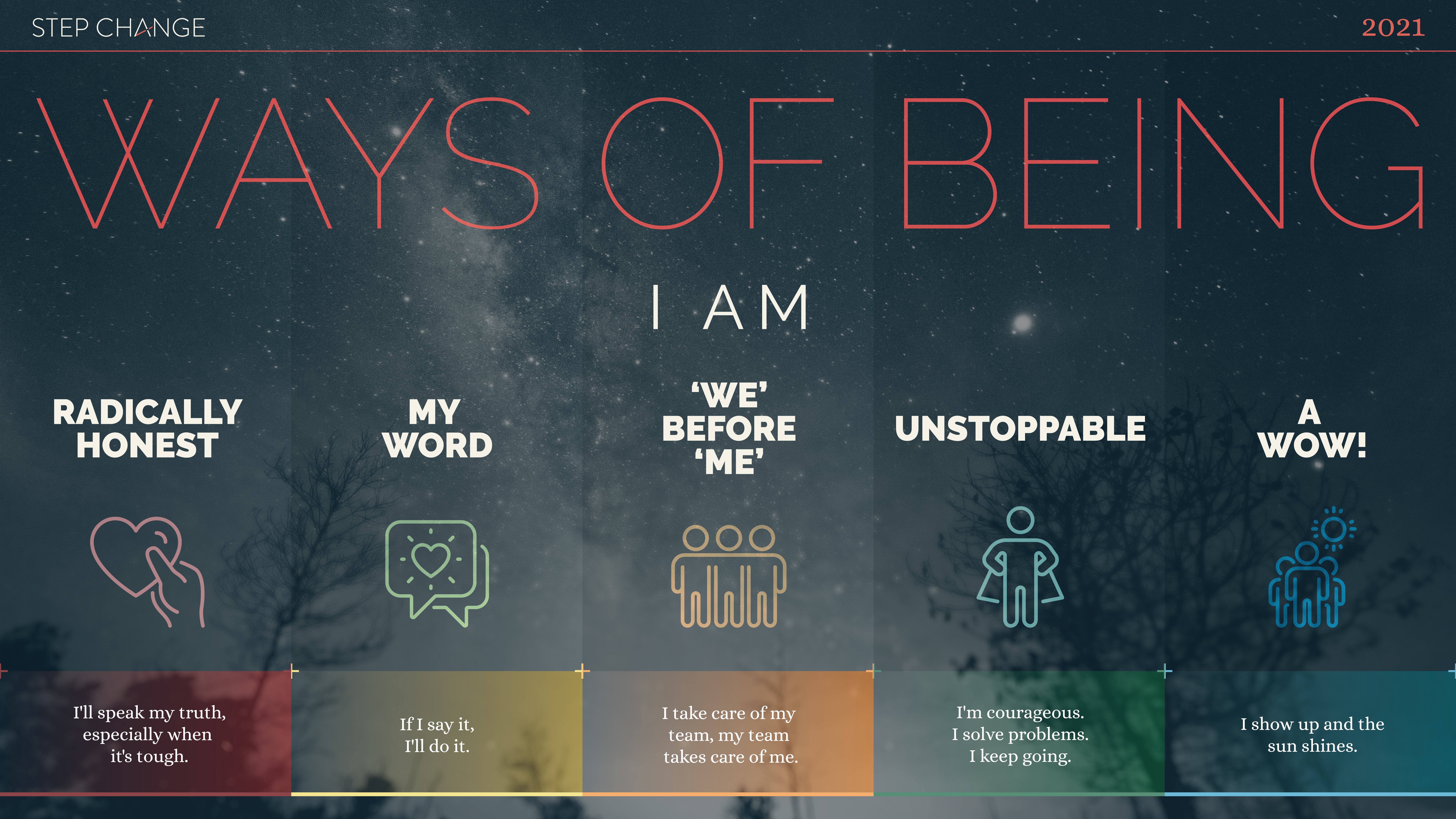The COVID-19 pandemic has changed the lives of millions of people. The past few months, the world has undergone a number of crisis episodes. In this series, we use the Step Change creativity tool to show how some of history’s greatest strategists might apply their strategies to the current crisis. The strategist for the day is the enigmatic rebel Che Guevara.
Whether or not you support the Communist ideology, you have to agree that the revolutionary known as Che Guevara was one of the most charismatic leaders in history. His strategies enabled him and his comrades to topple the Cuban dictator Fulgencio Batista.
He was seen as able to push back against the global superpower that was the USA. In the past few decades, Che Guevara has transcended from a mere revolutionary leader to an icon of the counterculture.
Che Guevara was a man of great ingenuity and he managed to hold off the capitalist powers with his knowledge of guerrilla warfare and political grandstanding. However, what if he was tasked to safeguard civilisation’s stability. What if he was tasked to help us fight and conquer the COVID-19 crisis?
Great Strategist of the Day: Che Guevara
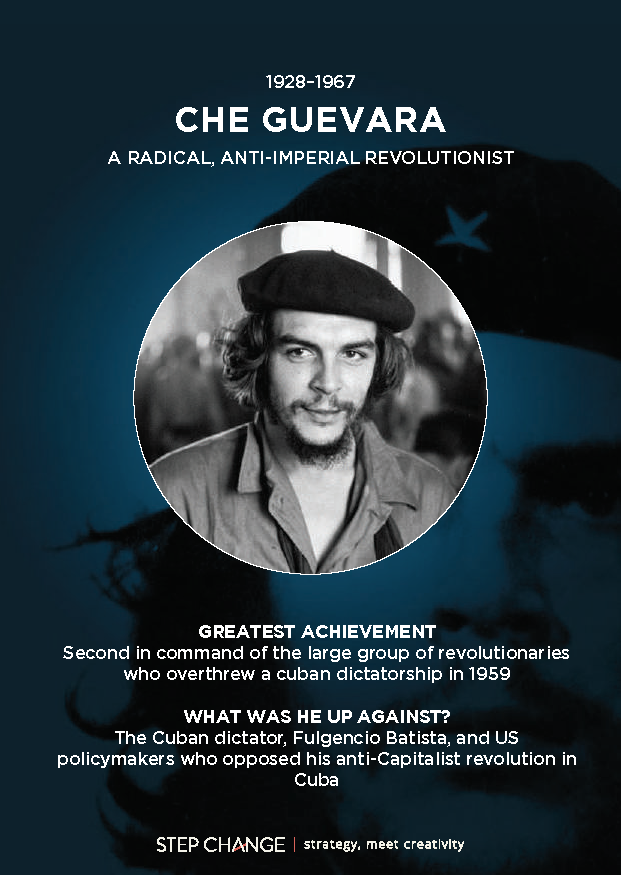 |
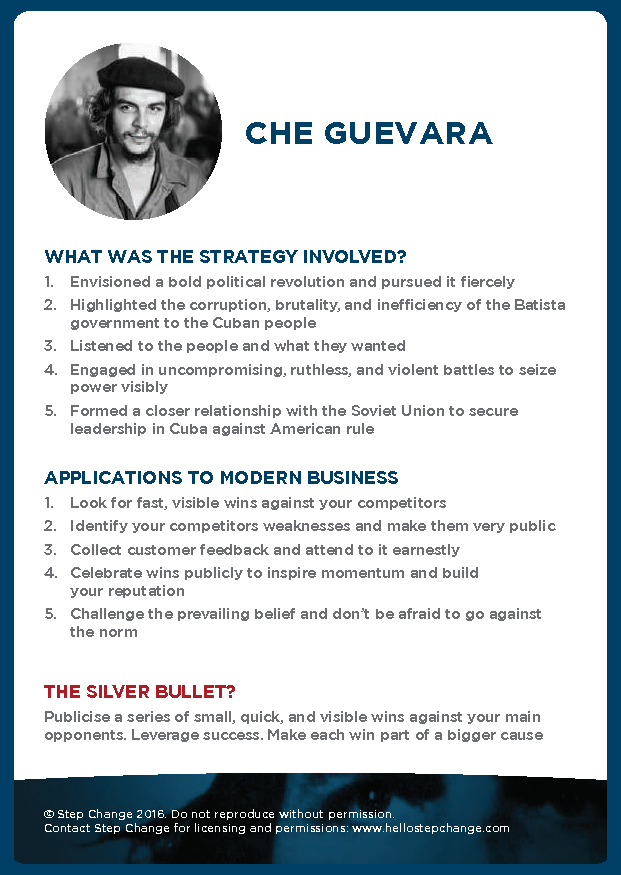 |
As a way to look deeper into Che Guevara’s psyche, we took the time to book a virtual interview with him. Here is a short (and imaginary) interview between historian Chris Bishop and Che Guevara.
Chris Bishop (CB): Good morning Che. I would like to kick off with the question that many people have posed. That is, how does a boy from a well-educated middle-class family finish up fighting in the jungles of South America.
Che Guavara (CG): It’s true my family came from the Argentinian middle classes and my studies saw me enrol in medicine. In addition, I was first exposed to the poverty of the masses in South America when I went there on holiday. I travelled through a number of South American countries and was appalled by what I saw. During this time, I read about capitalism and imperialism and came to the conclusion that the only way to achieve significant change was through revolution.
CB: How do you see that happening?
CG: I view the countries of South America, not as separate nations but as one cultural and economic entity, which would require an intercontinental strategy.
Later on, I saw how the CIA influenced the overthrow of the Arbenz regime in Guatemala. This convinced me that America would always oppose progressive leftist governments.
CB: How did you get involved in Cuban politics?
CG: I met Fidel and Raul Castro in Mexico who were preparing to overthrow the Batista regime in Cuba. I became convinced that real societal change could only be achieved through ruthless warfare to seize power. To that end, I joined Castro`s 26 of July Movement which after two years of guerrilla warfare seized power in Cuba.
CB: Why did you leave Cuba?
CG: Although we achieved much in the early days following the overthrow of Batista, I became disillusioned with Cuba’s reliance on Russia. I felt betrayed by the Soviets over the Cuban Missile Crisis of 1962, This was when the Soviets backed down after America applied pressure,
CB: What philosophy or doctrine have you developed for the revolution in South America?
CG: It is predicated on three main tenets:
- Guerrilla warfare can be effective, but ultimately the overthrow of the capitalist forces will take a major uprising by the people, resulting in the defeat of the army.
- You can commence the revolution without all the pieces of the plan being in place. The revolution will gain momentum.
- The countryside of South America is suitable for armed guerrilla combat.
I espoused a vision of a new socialist citizen working for the good of society rather than for personal profit.
CB: Where have you been since leaving Cuba
CG: I spent two years in the Democratic Republic of the Congo fighting in the civil war there before moving to Bolivia where I am involved with a guerrilla group fighting in Santa Cruz. The struggle continues.
CB: Do you have any final words for our readers?
CG: If you tremble with indignation at every injustice, then you are a comrade of mine.
In regard to my philosophy, the only passion that guides me is for the truth…… I look at everything from this point of view.
Postscript. Following this interview, Che returned to Bolivia where he continued the armed struggle. He was eventually captured and executed by the Bolivian Army.
How would he have handled the COVID-19 crisis?
Key strategies:
-
He saw corruption and inefficiencies within the government and fiercely pushed for a means to change things
Che Guevara may have been a brutal guerrilla leader, he took extreme measures to achieve his goals. However, his actions were not for selfish reasons. At a young age, he already had a great disgust for established democratic government. He also harboured pity for the poor and downtrodden. He saw that the corruption within the Batista Cuban government was slowly destroying the country. So he set out to topple the corrupt administration and put a communist regime in its place.
During the COVID-19 crisis, we should also be as discerning. We should look for any corruption and inefficiencies within our organisations, and take the necessary steps to root them out.
-
He knew how to reach the common man
One of Che Guevara’s greatest strengths was his ability to reach the common man. He was a man of the people, he knew how to spread his ideology through charisma and action. He was gifted with a great intellect and wrote extensively. He was from a middle-class family, but his idealism prompted him to break from conventional life and get down into the trenches with the poor.
During times of unrest, we should follow Che Guevara’s example and treat the struggling with compassion and respect, It is during such times that the poor are at their most vulnerable.
-
He knew how to use brutal but effective force to make a political statement
Che Guevara may have been an idealist, but he was not naive. He knew that the best way to spread his idealism was through action. The best way to make a political statement is through brutal but effective force. He took up arms and conducted guerrilla strikes against the Batista regime. He planned many of the confrontations and took part in most of the guerrilla attacks himself.
The COVID-19 crisis is a dangerous time for most businesses, and taking a timid approach to all business negotiations and operations can mean the downfall of your company.
If you want to learn more about how Che Guevara would have handled the COVID-19 Crisis click here.
